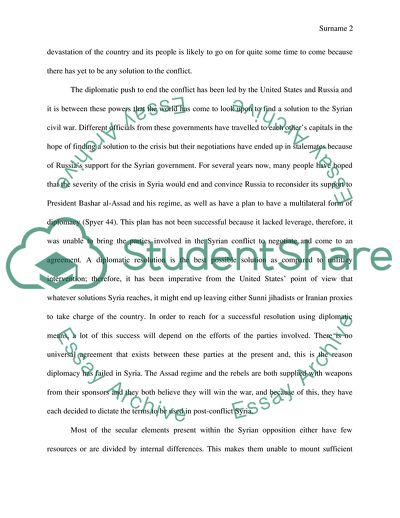Cite this document
(The Syrian Conflict Essay Example | Topics and Well Written Essays - 2500 words, n.d.)
The Syrian Conflict Essay Example | Topics and Well Written Essays - 2500 words. https://studentshare.org/politics/1828900-research-paper-on-syria
The Syrian Conflict Essay Example | Topics and Well Written Essays - 2500 words. https://studentshare.org/politics/1828900-research-paper-on-syria
(The Syrian Conflict Essay Example | Topics and Well Written Essays - 2500 Words)
The Syrian Conflict Essay Example | Topics and Well Written Essays - 2500 Words. https://studentshare.org/politics/1828900-research-paper-on-syria.
The Syrian Conflict Essay Example | Topics and Well Written Essays - 2500 Words. https://studentshare.org/politics/1828900-research-paper-on-syria.
“The Syrian Conflict Essay Example | Topics and Well Written Essays - 2500 Words”. https://studentshare.org/politics/1828900-research-paper-on-syria.


